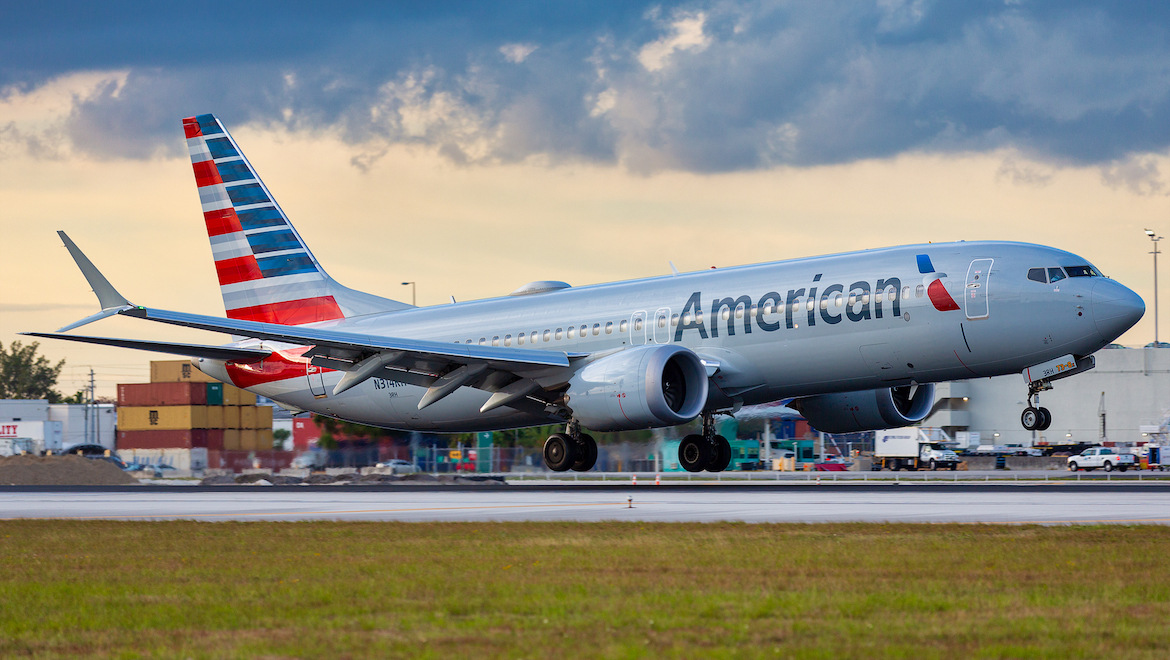
American Airlines chief executive Doug Parker says he expects to hear some “good news” soon about the fate of the proposed joint-venture with Qantas.
In February 2018, the two carriers applied to the United States Department of Transportation (DOT) for anti-trust immunity (ATI) for an expanded alliance and joint-business agreement on trans-Pacific routes.
It was the pair’s second attempt to forge a closer relationship, after the DOT in November 2016 knocked back the initial application that was lodged in 2015.
“There’s good news on the horizon,” Parker said during American Airlines’ first quarter results presentation on April 26 (US time).
“We’re very confident that our Qantas JV will be approved to go forward sometime soon.”
The two carriers have said in submissions to the DOT the proposed joint business agreement would generate an estimated $310 million annually in incremental consumer benefits should it be approved.
However, being prevented from having deeper partnership would place at risk some trans-Pacific flights, such as Qantas’s Sydney-Dallas/Fort Worth and American’s Los Angeles-Sydney and Los Angeles-Auckland services.
“The consumer benefits of the Proposed JBA are not conjecture – they are empirically proven,” the pair’s submission to the DOT dated December 4 2018 said.
“Consumer loss in the counterfactual scenario where ATI is denied will not be limited to the Dallas-Fort Worth area – up to 121 American and 35 Qantas codeshare segments will be eliminated, and American’s LAX-SYD and LAX-AKL flights will be at risk.”


Qantas and American have worked closely together on the trans-Pacific market since 2011, albeit without ATI.
The pair started codesharing on each other’s flights in 1989 and helped establish the oneworld alliance as founding members.
The other two major alliance groups on the trans-Pacific market were the Delta Air Lines-Virgin Australia tie-up and a JV between United and Air New Zealand. The latter covers only New Zealand-USA routes.

American reports Boeing 737 MAX grounding impact
Meanwhile, American Airlines said in its financial results first quarter of calendar 2019 that the grounding of the Boeing 737 MAX would result in a US$350 million impact on the company’s pre-tax earnings for full year.
The airline has removed all 24 of it 737 MAX 8s from operations through to August 19. American, which has a further 76 737 MAXes on order, said the grounding of the 737 MAX fleet represented about 115 flights a day and about two per cent of total daily capacity.
“Although these aircraft represent a small portion of the company’s total fleet, its financial impact is disproportionate as most of the revenue from the cancellations is lost while the vast majority of the costs remain in place,” American Airlines said.
“In total, the company presently expects the 737 MAX cancellations, which are assumed to extend through Aug. 19, to impact its 2019 pre-tax earnings by approximately $350 million.”

The company reported net profit of US$185 million for the three months to March 31 2019, up 16 per cent US$159 million from the prior corresponding period.
Pre-tax profit was US$245 million, compared with US$238 million in the prior corresponding period.




